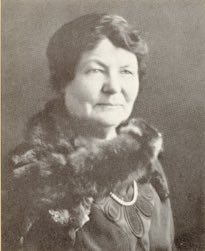Groundbreaking entrepreneur, Martha Matilda Harper became a servant at seven years of age and spent twenty-two years in domestic service in Canada. She immigrated to Rochester, New York at age thirty-five and continued in service for three more years.
Encouraged by Susan B. Anthony and her activist circle, Harper struck out on her own, opening the area’s first public hair care salon. Harper was a marketing innovator. Using her own floor length hair as a demonstration tool, she focused on customer comfort and individualized consultation. She employed only former servant women, produced her own natural hair care products and developed her own hair and skin care methods. She used only naturally occurring substances and refused the new chemical dyes and synthetic permanents.
Harper launched a new business model, which is today known as retail franchising. In thirty years, there were over 500 franchised Harper shops worldwide. Harper customers included royalty, prime ministers, social reformers, men, and women.
The franchised Harper shops were a powerful economic innovation that changed the realities of poor women’s lives. Hundreds of women
became owners, purchasing a Harper shop through her flexible financing. Thousands of women trained and worked in the Harper network. Harper was customer focused. She invented the reclining shampoo chair that is found in salons worldwide. Harper offered scalp massages and other relaxation services and provided childcare and evening hours. Flextime, profit sharing, and paid personal time off were employment practices Harper introduced. Harper employees were trained to assure consistency and high-quality service.
She was recognized in her time as a successful businessperson and became the first woman member of the Rochester Chamber of Commerce. Harper is now acknowledged as a model for such beauty industry women entrepreneurs as: Madam C.J. Walker, Elizabeth Arden, Helena
Rubinstein, Estee Lauder, and Anita Roddick. She created a franchising system and built a model that included centralized management, quality control, independent operators, and wider opportunities for women.

